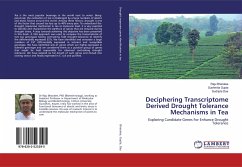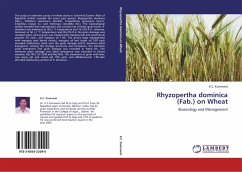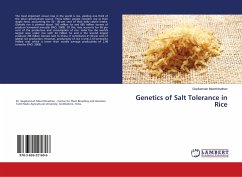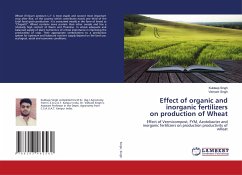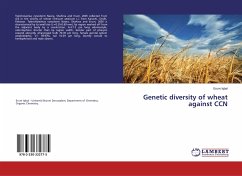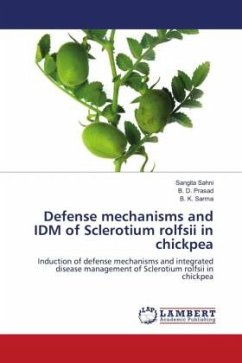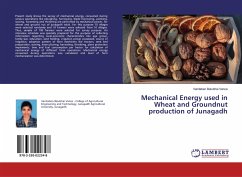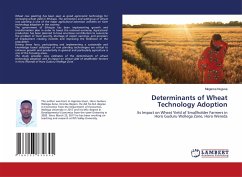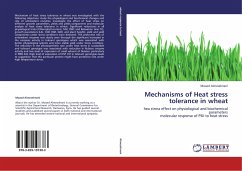
Mechanisms of Heat stress tolerance in wheat
hea stress effect on physiological and biochemical parameters molecular response of PSII to heat stress
Versandkostenfrei!
Versandfertig in 6-10 Tagen
52,99 €
inkl. MwSt.

PAYBACK Punkte
26 °P sammeln!
Mechanism of heat stress tolerance in wheat was investigated with the following objectives: study the physiological and biochemical changes and role of antioxidant enzymes, investigate the effect of heat stress on different growth parameters, yields and yields components and molecular analysis of heat stress tolerance in wheat. Significant reductions in all physiological traits (Chlorophyll content, MSI, RWC and Relaxation time T2), growth parameters (LAI, CGR, RGR, NAR, and plant height), yield and yield components under stress conditions were detected. The protective role of antioxidant enzy...
Mechanism of heat stress tolerance in wheat was investigated with the following objectives: study the physiological and biochemical changes and role of antioxidant enzymes, investigate the effect of heat stress on different growth parameters, yields and yields components and molecular analysis of heat stress tolerance in wheat. Significant reductions in all physiological traits (Chlorophyll content, MSI, RWC and Relaxation time T2), growth parameters (LAI, CGR, RGR, NAR, and plant height), yield and yield components under stress conditions were detected. The protective role of antioxidant enzymes was clearly seen through the significant increased in the enzymes activity in tolerant genotypes which was associated with better physiological systems and more stable yield under stress condition. The reduction in the photosynthetic rate under heat stress in susceptible and tolerant genotype was associated with reduction in Rubisco enzyme activity and low level of expression of small subunit of Rubisco particularly in PBW 343. High level of expression of HSP 101 in tolerant genotypes leads to suggestion that this particular protein might have protective role under high temperature stress.



